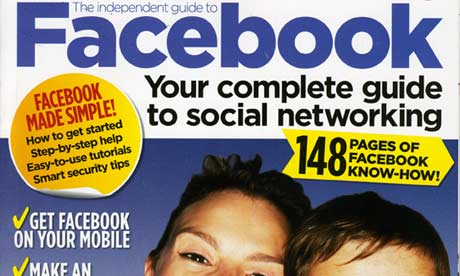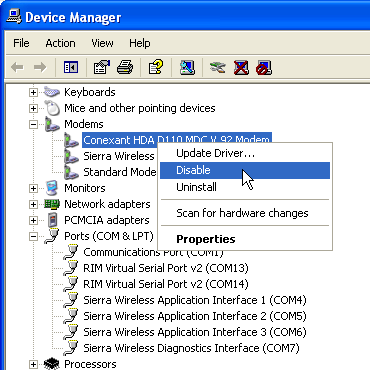Wow… ok no posts at all in 2011
Maybe I should write more.

Just a quick comment because it has been forever... seems Google is getting evil'er. Their change in privacy policy uses the same mechanisms to violate your privacy to even dismiss their notice. SMH.

Purchased an iPad the other day... got an android phone a while back too. I had quite the time with Android just getting it so I could keep my contacts and appointments out of the cloud. Only found one solution (markspace - missing sync). Now with the iPad its the same thing, but worse because of the closed ecosystem. It seems the cloud is inevitable, driven by the devices and the market themselves. The notion of staying out of the cloud precludes device usage now it seems.
This is unfortunate because data exploitation is something relatively few people understand or know about. Moreover the problem is data value is transient. Just because "I'm not worried about Google knowing my schedule" doesn't mean my schedule has no value, that the aggregation of my schedule over time is worthless, or that the one occasion when I didn't want my information available (think about the initial launch of Google buzz that left your contacts open) is harmless. That our entire society seems to be moving towards the centralization (control) of our information by a relatively few number of people without significant debate seems like quite the folly. There aren't a lot of choices to remain out of the cloud and it is only getting worse.
Just thought I'd post some motivation:
"Think big thoughts, but relish small pleasures. "
~ H. Jackson Brown, Jr.
A colleague asked me for my thoughts and some advice on the iPad. He wanted to use it for basic photo sorting, e-book reading, and presentation activities (e.g. when teaching). I largely told him that it would likely be Ok for those purposes but suggested that it would not likely be the slam dunk the iPhone was. He replied suggesting we might collaborate on a paper, so I wrote back with my thoughts. Realizing that my assertions might make a good prediction, I decided to post my reply here for the record.
I guess I could summarize my concern as proximity to my "ideal" device; I think they (manufacturers) are quite close to achieving or at least resolving some of the key challenges for me. Further I agree, many things are converging for the iPad to be a hit and it likely will be. However I suspect its not the "game changer" the iPhone was. The paper idea is interesting; particularly your suggestion of a debate. Here's some content to consider in that regard.
I think we are both early adopters or pragmatists (generally to left of center on the adoption curve). Regarding our different perspectives: the lens through which we are viewing the device I think is not only colored by our needs and expectations therein, but also our anticipated use and subsequent value definition grounded in that use (read: expectation-to-value ratio). The applications for the device and the extent of utility within these application areas I think are where we diverge.
When the application area is narrow, I believe manufacturers have a greater chance of success, in terms of hitting the target. When the target is hit and the technology exceeds its intended utility, as was the case with the iPhone it becomes easy to perceive the success as groundbreaking. This success becomes even more distinct when competitors have to take time to catch up. The iPad does not have this narrow focus nor broad utility; perhaps "yet" on the utility, as that may be enabled by others. Nor does it have the technological distinction to maintain what is likely to be an initial success.
The iPad is playing in a finicky, relatively new market (ebook and mobile video) where considerations like form factor, ruggedness, battery life, and content availability are the dominant success determinants (no Flash = huge limitation in available and I might add, free, content -- in case you wanted to argue HTML 5, it will take some time for that content to build). While I expect the iPad to be moderately successful, initially by riding the "wave" created by the iPhone, I believe users will quickly sober up from the marketing hype (with which Apple has done a phenomenal job).
I think the price point, form factor (between laptop and cell phone), and utility of the device (which depends heavily on network availability/performance etc.) will ultimately decide broad acceptance with the masses. Nonetheless, I think the iPad will further enable a sea change in portable computing; one which netbooks and early e-readers have already started. For me the iPad is an entertainment device first, because it will not replace my laptop right away: my expectation-to-value ratio places it soundly in the "toy" or "extra" category.
With the iPad, I feel like the wave is coming but like a surfer I am waiting for the swell to build.
Boy, it has been some time since I posted anything here. I suppose I should do more of this. Perhaps I will try.
I was having a discussion with a colleague about SVN version control on windows and he seemed certain that you HAD to install the Apache web server. I was certain that you did not... but I felt compelled to investigate. I was right (native SVN will work on port 3690), but many of the available installations included Apache. However through DAV and such there are some definite benefits to using Apache. Here's some docs on how to do it (either way you may go):
Without Apache: http://www.codinghorror.com/blog/archives/001093.html (you might still need the Apache binaries to set the passwd/htpasswd)
The straight binaries: http://subversion.tigris.org/servlets/ProjectDocumentList?folderID=91
One Click setup: http://svn1clicksetup.tigris.org/
Nice overview: http://willperone.net/Code/svnserver.php
VisualSVN Prepackage: http://www.visualsvn.com/server/
I came across a Gaurdian.U.K. article by Tom Hodgkinson from early 2008 with a particularly well discussed view of the issues with Facebook (and by extension, other social network applications). While this article specifically discusses Facebook, I think the points made, when generalized, are applicable to all of the social nets. Hodgkinson takes many of the significant problems with social applications (privacy, interpersonal issues, behavioral issues, politics, and economics) and succinctly lays it all out in an easy to read, cynical, but light way -- all with fine British grammar and spelling.

The article definitely gave me some comfort (and further motivation) in my rationale for not having a presence on/in these applications. Really good read. Here's a snippet and as always a copy is archived after the jump.
... And does Facebook really connect people? Doesn't it rather disconnect us, since instead of doing something enjoyable such as talking and eating and dancing and drinking with my friends, I am merely sending them little ungrammatical notes and amusing photos in cyberspace, while chained to my desk? A friend of mine recently told me that he had spent a Saturday night at home alone on Facebook, drinking at his desk. What a gloomy image. Far from connecting us, Facebook actually isolates us at our workstations.
Facebook appeals to a kind of vanity and self-importance in us, too...
http://www.guardian.co.uk/technology/2008/jan/14/facebook
(more...)
I have recently been doing quite a bit of windows mobile development -- primarily GPS and Radio Interface layer (RIL) coding. This is to further my research on resource availability related to cloud computing. I'll post a paper shortly. Anyway I was have trouble getting the VS cellular emulator to work. Found a link to help. Credit goes to Scott Savage. His blog can be found here:
http://www.scottsavage.net/2009/02/com-17-is-used-please-verify-in-cellular-emulator/
As usual I post a copy for archival purposes.
When starting the Cellular Emulator included in the Windows Mobile 6 SDK I received an error “Com17 is used please verify”. This is a particularly annoying error because it completely prevents the program from even starting. Where is the setting to manually select a COM port? 
Anyway I managed to stumble upon a solution on the MSDN FORUM and I am reposting it here so other people find it a bit more easily:
Disabling modem devices in Device Manager
“C:\Program Files\Windows Mobile 6 SDK\Tools\Cellular Emulator\InstallXPVCom.exe” UnInstall
“C:\Program Files\Windows Mobile 6 SDK\Tools\Cellular Emulator\InstallXPVCom.exe” Install
The best part about this fix is that it is permanent. No need to disable the devices every time you start the Cellular Emulator, it remembers how to make everything work properly. Why couldn’t it do that in the first place?
UPDATE: A FAR SIMPLER SOLUTION:
If someone is still in trouble with this, I've just solved my problem by simply doing this :
- Open Regedit
- Go to HKEY_LOCAL_MACHINE\SYSTEM\CurrentControlSet\Services\xpvcom\history\group
- Double-Click on the entry named '6', the one with a value equal to 'COM17< -->COM27'
- Clear the value so that you still have the entry named 6 but data is empty
- Start Cellular Emulator